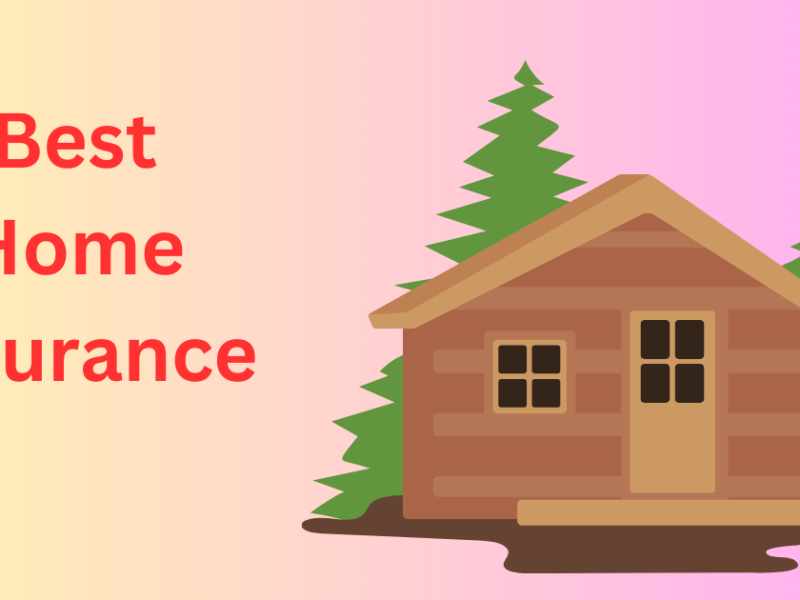Health insurance: How To Apply For Health Insurance? A complete Guide:
Acquiring health insurance may be a critical part of taking care of yourself and your healthcare needs. This in-depth guide on how to get health insurance will explain various types of plans, enrollment procedures, and advice for picking the right coverage.

1. How to Choose the Best Health Insurance for an Unemployed Person
Different Types of Plans AvailableBefore you go and apply for health insurance, it is very important for you to know the kinds:
This is when employers offer insurance as part of a benefit package. Ask your HR department about availability and time frames of enrollment.
How to Get Health Insurance: Individual Health Insurance (generally for self-employed or employees at workplaces that do not offer insurance) — Purchasing insurance on your own.
Loan Forgiveness: You may be eligible for loan forgiveness programs through the government a following your specific case.
Medicaid: Low-income individuals What is Medicaid?
Medicare: Covers some people ages 65 and older or younger people with certain disabilities.
Children’s Health Insurance Program (CHIP) — for families who earn too much to qualify for Medicaid but cannot pay private coverage.
Marketplace Insurance: You can purchase insurance during open enrollment periods through the Health Insurance Marketplace (Obamacare) and get coverage from several plans offering potential subsidies for your income.
2. Assess Your health Care Requirement
Review your health insurance needs to determine what type of coverage you want:
Number of times a Doctor has Visiting you: Do often visit a doctor? Check out the plans with fewer copays at the office visits.
b) Prescription Medications: If you are taking any medications, see if the plan includes cover for them and at what price.
Specialist Care: If you will visit specialists, make sure they are part of the network.
Family Coverage: This type of coverage depends on how many dependents need covering and what their health care needs are.
3. Research Available Plans
Compare Plans: Compare premiums, deductibles, copays, out-of-pocket maximums and network coverage.
Confirm In-Network Status For All Selected Providers Make sure your doctors and hospitals are in-network so you don’t end up paying they full sticker cost.
Check for Extra Benefits– Some plans will include things like dental, vision or wellness programs.
4. Gather Necessary Information
When you are getting ready to apply for health insurance there is some specific information that you will need:
Identity: Name, address, and Social Security number
Information on Income: W-2s and/or recent paystubs or most recent tax returns to help determine if you qualify for any subsidies/Medicaid benefits.
Health Data: Information on recent medications/conditions, and a personal medical history.
5. Apply for Health Insurance
The application process will vary, depending on your option of choice:
Employer-Sponsored Plans: You would traditionally fill out a form at open enrollment. Ask your HR department for specifics.
Marketplace Plans:
Visit HealthCare. period at gov
Sign Up, Apply & Compare
Medicaid/CHIP- if you are eligible, you can apply at any time by calling your state’s Medicaid office or visiting their website.
Individual: You may apply through an insurance company or a licensed broker.
6. Review and Choose Your Plan
Once you apply, your plan options should be:
Premiums vs Coverage: Select a plan that accounts for both monthly premiums as well as possible out-of-pocket costs.
Learn About Policy Limits: Be sure to know which limits you get without charge, including annual or lifetime caps.
Fine Print: Know what is included, excluded and not covered by the policy in addition to how long you will have to wait for coverage on pre-existing conditions.
7. Enroll and Pay Your Premium
Once you’ve selected a plan:
Finish Enrolling: Make sure you follow the same enrollment steps and complete your registration.
Pay Your First Premium: Coverage may start once you pay your first premium.
8. We All Serving And Posting Charge
File & Documentation: Save a copy of your insurance card, policy documentation and any correspondence from the insurance company.
Knowledge Is Power: Get in the habit of knowing open enrollment time frames for changes, and also any changes that happen throughout the year such as family life events.
9. Seek Assistance if Needed
For assistance with this process, check out these sites:
Insurance Brokers: Partner with to get help selecting your plan + signing up.
State or Local Help: Your state may offer free help from navigators to consumer assistance programs.
Online Resources: Websites like HealthCare. gov and provides access to information on different plans, and when you can enroll.
Conclusion
Getting health insurance is essential in case you want to keep on being able to access necessary medical care and secure your fiscal well-being. Learn about your choices and what you need, and apply for coverage that works for you and your family. Stay abreast of your health insurance benefits and any marketplace changes
So why do we need Home insurance?
Home Insurance, also referred to as homeowners’ insurance is an essential investment into the property owner. There are a few reasons why getting Home is crucial:
1. Coverage for damage to home
Peril coverage – This means that your property damage and personal belongings will be compensated in the event of perils like fire, theft, vandalism, windstorms and other common natural disasters.
Rebuilt costs: In case of severe damages or the destruction of your home, you would not need to pay for rebuilding and repair through your own pocket.
2. Liability Protection
Bodily Injury on Your Property: Home insurance will provide protection to you against either legal claims or lawsuits when someone has to face physical injury that takes place at your house. It is usually related to medical bills and legal fees from liability claims.
Accidental Property Damage: In the event you accidentally break someone else´s property, your home Insurance can shield your pocket from potential lawsuits.
3. Personal Property Coverage
Protection of Personal Property: Home insurance protects your personal belongings such as furniture, electronics, clothing and appliances against theft or damage. This coverage can also help you replace the items that were lost or broken without having to come out of pocket for large amounts of money.
4. ALE – Additional Living Expenses
Since home is where your heart is, you’ll be glad to know that should the place where you build your life become uninhabitable due to a covered event like a fire, your insurance will help pay for temporary housing such as covering hotel bills and meals until either repairs are finished or it’s rebuilt.
5. Mortgage Requirement
Lender Mandate: Some states require home insuarnce if you have a mortgage. This helps them to protect their investment in your property. If you do not have insurance, and a disaster happens, you could lose your home.
6. Peace of Mind
Peace of Mind: The knowledge that you are protected in the event of an incident with your home or property can take a lot off of your mind, and free you up to do other things rather than constantly worrying about possible financial damages.
If disaster strikes, home insurance makes sure you are ready to resist trouble and lessens the stress of a difficult time with an emergency plan in place.
7. Risk Mitigation
Guard Against Financial Loss: Home insurance provides a cushion against the financial damage which you might have to incur from your house. This helps protect you from suffering a serious financial strain because of unexpected incidents.
8. Customization of Coverage
While policies vary from insurance producers, homeowners can adjust their policy by adding other coverages such as flood insurance or earthquake insurance, and personal liability coverage can be added to a tailored Homeowners Insurance Policy.
9. Investment Protection Over Time
Conservation of Property Value: Insurance talks about the value of your home and restoring or replacing damaged structures.
Conclusion
Home insurance helps protect your home, your belongings and your finances in the event of unforeseen circumstances. Its your protection against property damage, liability claims and other unexpected events, giving you the financial support to help in losses. Again, the greatest benefit of home insurance is simple peace of mind- homeowners can rest easy knowing they are protected against financial setbacks, just by protecting their dwellings.
Reasons to get Home insurance (Great things about Home insurance)
Home insurance gives homeowners significant benefits by ensuring financial protection and peace of mind. The major advantages are:
1. Protection of financial interests from damage to property
Those costs can be astronomical if you have no home insurance to help with repairs or rebuilding following anything from a fire, storm damage and vandalism to other covered events.
Personal Belongings: It covers costs to replace your personal things (including furniture, electronics, clothing) if they are damaged or stolen.
2. Liability Coverage
LAW SUIT PROTECTION: If someone gets hurt on your property or YOU accidentally cause damage to their property, your home insurance will include liability coverage in order to shield you from any legal claims.
Medical Payments: This will pay out for guests injured in your home, regardless of who is at fault and can help prevent potentially costly law suits.
3. Coverage for Additional Living Expenses (ALE)
Coverage for Temporary Housing Costs: If a covered event renders your house unlivable, home insurance can help foot the bill for hotel stays and meal costs while your house is being repaired.
4. Peace of Mind
Peace of Mind: The is nothing worse than losing things, but if the worst does happen you will at least have insurance. This takes their loss off your mind and paddle so you can get on with other things when something happens to those little luxuries in your life.
Disaster Preparation: If you have insurance, you are setting yourself up to deal with unforeseen events — & it gives you a sense of security in your ability to bounce back from a financial disaster.
5. Insurance for Home-Based Businesses
Business Equipment: Home insurance policies including cover for business equipment and liability, providing additional protection for your work-related assets if you operate a business from home.
6. Customization Options
Personalized Coverage: If you need specific types of coverage like flood insurance, or want higher liability limits, many policies allow custom options.
Valuable Items Coverage- If you have high-value items such as jewelry, art or collectibles you can buy additional coverage to ensure they are properly protected.
7. Mortgage Requirement
Lender Compliance = Because insurance is typically a condition of the mortgage lenders use it to protect their investment.
8. Investment Protection Over the Long Term
The preservation of value: insurance protects your home from damage, which is important for maintaining the real estate market and selling a house in prospects.
9. Risk Mitigation
Home insurance helps as a safety net to protect you form any huge financial tribulation that may come with accidents, natural disasters or unexpected events.
10. Rental Property Peace of Mind
Landlord Coverage (Coverage on Renting Out Your Home): If you rent out all or a portion of your house, landlord insurance coverage will protect you from threats that are associated with occupants such as property damage as well as responsibility cases.
Conclusion
Home insurance is necessary protection for homeowners that safeguards property damage, liability claims and living expenses. Protects your investment, customization options and compliance with mortgage requirements After looking at the statistics, one can conclude that a little protection is indeed vital for your home as it reduces the financial risks of owning a home and is merely another [source]; of greater security for your possession but also to protect you in future and be found just like the engine insurance (Stocksnap/ https://stocksncap.com/best-5-hits-of-the-week/); which enables us to purchase our own cars.


